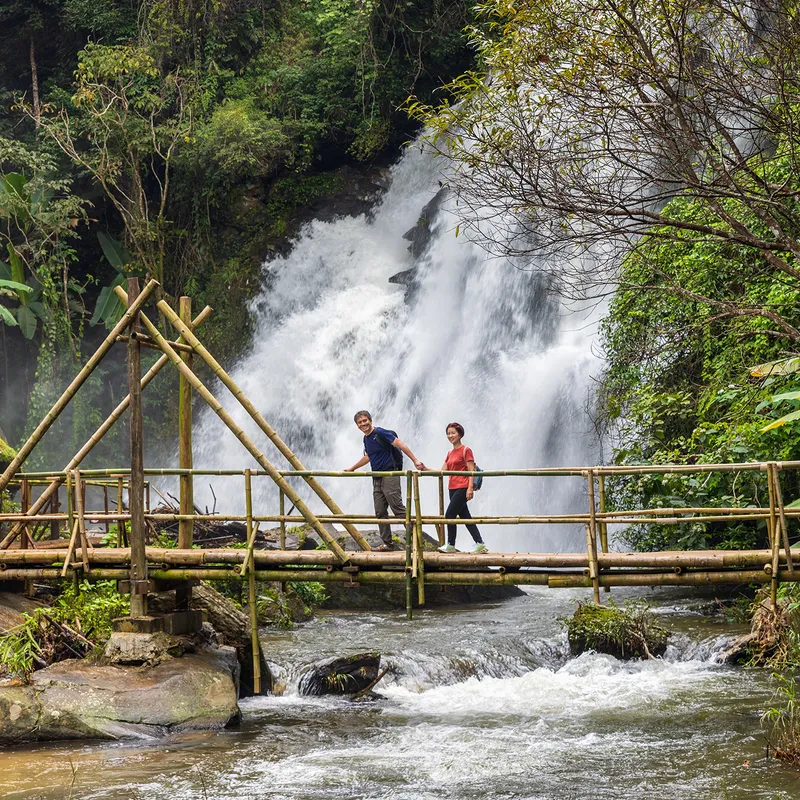Conscious luxury: Travel trends that will shape 2025
From exploring hidden villages to staying in eco-conscious retreats, conscious luxury travellers are redefining the essence of wanderlust.
The modern traveller seeks meaningful connections, bespoke experiences, and stories that enrich their understanding of the world. This has led to a surge in boutique hotels celebrating regional heritage and craftsmanship, community-forward travel fostering human connections, and conscious tourism addressing the challenges of over-tourism and environmental degradation.
As we step into the future, the rise of this mindful approach signals a new chapter in tourism—one that balances indulgence with impact, ensuring our journeys leave not just footprints, but lasting, positive change.

Image source: Shutterstock
Boutique hotels
Forget gigantic cookie-cutter hotels that look and feel the same all year. The new-age traveller is scouting the planet for unique, boutique establishments that are small but true to their context.
They are mindfully constructed, keeping in mind the local architecture and environment, with interior detailing that adds character to the space.
Most of these boutique spaces enhance their authenticity by displaying local art, strengthening connections between the community and traveller, highlighting regional cuisine and focusing on bespoke luxury experiences.
Community-forward travel
Travellers are looking to forge strong connections with like-minded people who share similar niche interests and hobbies, as well as echo ideas on upskilling and knowledge building.
Growing research points to human connections being key to well-being and longevity. As a result, the GenZ generation is pulling out all the stops to be part of communities through travel. Travel has increasingly become a vehicle to meet new people while initiating conversations on specialised interests, personal growth and evolution, and niche subcultures.
Conscious tourism
We are in an era where over-tourism is killing the romance of travel. Across the globe, travel hotspots like Barcelona, Venice, the Canary Islands, and Rovaniemi have seen protests against mass tourism and its ill effects on the local population.

Image source: Shutterstock
To counter the negative impact of excess tourist traffic on destinations, global agencies such as UN Tourism have launched programmes such as ‘Best Tourism Villages’, formed on the bedrock of sustainable community-focused initiatives. It also spotlights conservation, sustainability, heritage and community ties, looking at them not as buzzwords but as impactful growth drivers.
Conscious luxury travellers are also seeking unexplored destinations to create lasting memories and chart new roadmaps for vacation experiences. Be it a beautifully designed space in the midst of a 16th-century village or a planter’s bungalow inside a tea estate, modern holidaymakers are looking to escape to under-the-radar hideaways that promise a deeper connection with the local ecosystem.
Storytelling at its core
Travel enthusiasts, in large numbers, are ditching homogenous, sanitised holiday experiences offered by marquee brands in favour of independent properties and tour operators that bring to the front lesser-known tales of the community. These businesses offer tourists a deeper understanding of the history and place community-driven content at the centre of their immersive experiences.
Most boutique tourism proprietors are weaving in stories narrated by local craftspeople and offering unique experiences like monastery trails, and handcrafted antique and local textile tours, among other colourful adventures. Nothing is routine, monotonous or expected in these holidays.
Regeneration
In this day and age of climate change, regeneration is also a theme running through many tourism offerings. However, the conscious luxury traveller sees through the marketing spiel around carbon emissions and focuses on enterprises making genuine efforts to procure local goods and involve local communities in their projects.
GenZ is ahead of the pack when selecting vacations based on the impact hotels and tour operators have on the planet. Thus, successful travel businesses of the future have to showcase in detail their strides towards sustainability and ways they plan to give a new lease of life to the local ecology. From using local materials and traditional architectural techniques to build their properties to curating activities for guests that limit fossil fuel use, the potential to grow as a green travel brand is immense.
To be sure, tourism in the coming years will be different. The tribe of conscious luxury travellers is all set to grow as they choose destinations and hotels that offer them a sense of belonging and original immersive experiences. Travel brands will have to work hard to provide this group with authentic and meaningful connections by bringing like-minded individuals under the same roof and curating activities that resonate with their unique personalities and profiles.
Hopefully, it will be the beginning of a new enriching chapter of seeing the world.
Edited by Kanishk Singh







